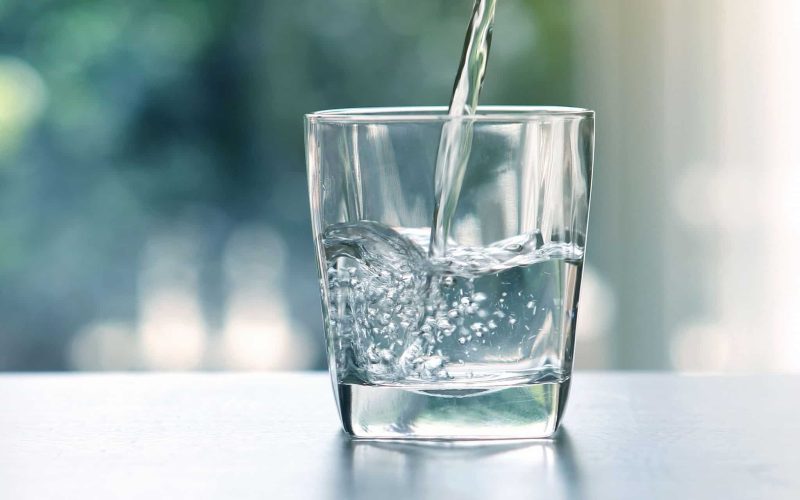Majority of people do not know the significance of taking water and though water is a major part of the human diet, how many people exactly know the reason why they take water? Clean water is exceptionally significant for the body either amid sustenance or after nourishment.
There are a few advantages of water that one may not know but these should help you get a clearer concept of the medical advantages of water. As we all know, water is made of two atoms named hydrogen and oxygen in a ratio of 2:1 respectively.
Both men and women need a specific amount in their daily intake of water and like many things, they do vary in these proportions, but it is a necessary and important fact to remember that we all need water to survive.
According to a research article found on British Nutrition Foundation, Water is found to be the major constituent of the body and an average person weighing 70kg (which is the average body weight) contains about 42 liters of water of the total body water. So now, let us examine, how imperative is water to your well-being?
Essential medical benefits of water are;
Water goes about as a medium of transport in the body
Basically, after the chewing of food chunk, the food is broken down into several components (depending on the type of food taken).
Now, for these food components to get to their various destinations in which they can be used appropriately, they need a medium or a vessel of transport. At that point comes water.
Water helps to transport these food particles to their various destinations. For example, after the breakdown of a food that is very high in carbohydrates, these food particles need to be transported to the mitochondria of the muscle cell (one of the different spots that is required) in which it would be used appropriately for the generation of energy.
So, without water, food particles and components can’t be transported adequately to their sites for use.
Asides the fact that water is used as a transport medium for food components, according to British Nutrition foundation, water can also be used for the transportation of nutrients, electrolytes, blood gases and likewise waste product…. Great, wouldn’t you say?
Water helps to increase or build up the blood volume of the body
The blood volume of the body can be increased by water. How you might wonder? There is something known as ECF (extracellular fluid). ECF is a fluid found outside the cellular environment i.e. on the outside of the cell.
As indicated by the British Nutrition Foundation, 35% of Total Body Water is found in the Extracellular fluid.
At a point where there is a decline in the blood volume of the body, it just implies that the body fluid in the body is decreased and this can cause extreme or severe heart issues such as low blood pressure, low kidney filtration leading to increased pH (i.e. the rate of acidity or alkalinity) of the body.
Water helps in weight loss and weight reduction
At a point when water is expended at a high rate within the limit of proportion, it can help to decrease body weight. Water is the main calorie free drink that is accessible and once water is substituted or taken rather than the sugary or enhanced beverages, it satisfies the body and similarly doesn’t include any calorie unlike the high amounts of calories ingested when sugary or flavoured drinks are taken in.
In other words, this implies that regardless the amount of water taken in, provided it is within proportion and within the limit, you can sit back, relax and not fear the amount of calories ingested because in the real sense of it, there is NO calorie amount gotten from water.
So, ride on and continue taking those glasses of water and watch how water helps recoils your body weight.
Water helps you remain hydrated
Water unlike those flavoured or sugary drinks such as soda helps your body to stay hydrated and satisfied.
Water controls the temperature of the body
At the point when there is over abundant warm in nature (heat), the body reacts by the generation of perspiration(sweat) to influence the body to feel cool and not dry amid the warmth.
- In Pregnant women, the amniotic fluid that is comprised mainly of water and ions is used to cushion the baby and furthermore act as a safeguard for the fetus in a case of mild external trauma or a gentle outer injury.
- Water acts as a lubricant to reduce friction in between joints: Most joints in the body contain synovial fluids in between them which helps to reduce friction in between the bones involved.
Did you know?
- A man can survive without the intake of food for one month, but he can’t survive without the intake of water for 10 days?
- The major source by which water gets into the body is by ingesting both food and water through the mouth?
- According to British Nutrition Foundation; the breakdown/metabolism of 1g of protein will generate 0.41ml of water, the breakdown of glucose will generate 0.60ml of water while the breakdown of fats will generate 1.07ml of water?
Sources or ways by which the body loses water?
Water can be lost through several means in the body. Some is because of natural procedures which are totally typical while others are because of some ailing conditions.
The body sheds off water biologically or naturally and this is to prevent the excess increase of blood volume of the body which can lead to hypertension. The body does this by the following processes:
Urination or passing out of urine
This is the major function of the kidneys and this is done under highly mechanized processes such as ultrafiltration etc. The kidney does this by filtering the blood that is being passed into the glomerulus of the kidneys and this is where ultra-filtration takes place.
According to the British Nutrition Foundation, the volume of urine per day is at least 500 ml for eliminating waste substances of metabolism and may be up to 1500ml. This thereby makes Urination or the passing out of urine the major biological way by which water is lost from the body
Another biological way by which water is lost in the body is Exhalation (breathing out)
During breathing, water vapour of relatively around 300ml is lost from the body while expiring air and this is an unavoidable biological process that occurs in the lungs.
Through body sweat
When there is heat in the environment, in order for the body to maintain a homeostatic environment, the body has to shed off or loose water from the body in order to cool the body. This is likewise an unavoidable biological process by which water is lost from the body.
Did you know?
According to the British Nutrition Foundation, for an average adult, the loss or removal of water gotten from skin, lung, gastrointestinal tract and kidney is at least 1500 ml per day?
Ailing conditions that can cause the loss of water in the body or cause dehydration include diarrhoea, vomiting, loss of one or both kidney functions and severe fever.
Taking all these into account, we know that water is essential and critical to our fitness and our well-being and to our body in general. The importance of taking in water cannot be over emphasized. Water is indeed the premise of life.





